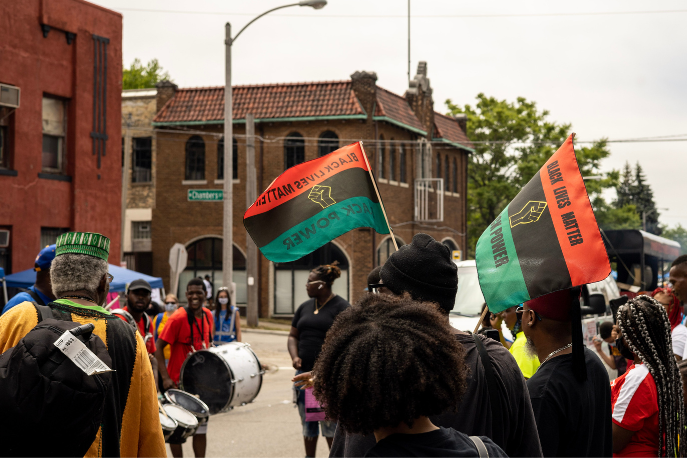Last year, Juneteenth was made a Federal holiday—the first new Federal holiday since Martin Luther King Jr. Day in 1983, so it was a big deal. Many people are still learning the meaning of June 19, 1865, and how we collectively reconcile and celebrate two very different types of Independence Days every summer.
Here is what the RALIANCE team has been reading to get all caught up on some of Black-American history, the significance of Juneteenth, and the best ideas for how to celebrate the holiday with diverse colleagues in the workplace.
The 1619 Project (New York Times) – The Pulitzer-winning project led by journalist Nikole Hannah-Jones posits that slavery is neither peripheral nor parallel to the history of the United States, but rather absolutely central to it. The 1619 Project, named after the first year when people were brought to North America as chattel slaves, was first a special issue of The Times magazine. It has since been spun off into a podcast and a book. The endeavor takes a look at slavery’s integral role in the development of American society and the impacts of that legacy in the modern day.
‘We received feedback’: The commercialization of Juneteenth backfires for big brands (Yahoo! Finance) – We’ve become used to the commodification of holidays—whether the occasion comes with a blowout sale or limited-time merchandise. However, this pattern can become uncomfortable for staff members when the day of commemoration is rooted in a history of oppression or inequity. This article explains the concern with the commercialization of Juneteenth. The next article explains better ways to celebrate.
How companies can celebrate Juneteenth (HR Dive) – With such a new holiday, most companies don’t necessarily have established traditions or corporate culture around Juneteenth. But it’s never too late to start. In this article, HR Professional Akilah Cadet offers a bevy of ideas for how workplaces can start incorporating Juneteenth into the annual schedule. Some suggestions include making the day paid time off, sharing educational resources, or supporting local Black-owned businesses.
How people came to celebrate Juneteenth in the United States (ABC13) – Juneteenth is not just about freedom for enslaved people. It speaks to the Confederacy’s resistance to letting go of the slavery system even after they had lost the Civil War. This quick read explores why Texas slaves were the last to know they were free.
We leave you with this quote:
“What, to the American slave, is your 4th of July? I answer; a day that reveals to him, more than all other days in the year, the gross injustice and cruelty to which he is the constant victim.” – Frederick Douglass, July 5, 1852.
Federal recognition helped make Juneteenth more ubiquitous, but there is still a lot of learning to do. Learning is a healthy and necessary process because updating knowledge and norms is part of building an inclusive workplace. Keep checking back for more ways to strengthen your workplace culture.
RALIANCE is a trusted adviser for organizations committed to building cultures that are safe, equitable, and respectful. RALIANCE offers unparalleled expertise in serving survivors of sexual harassment, misconduct, and abuse which drives our mission to help organizations across sectors create inclusive environments for all. For more information, please visit www.RALIANCE.org.

